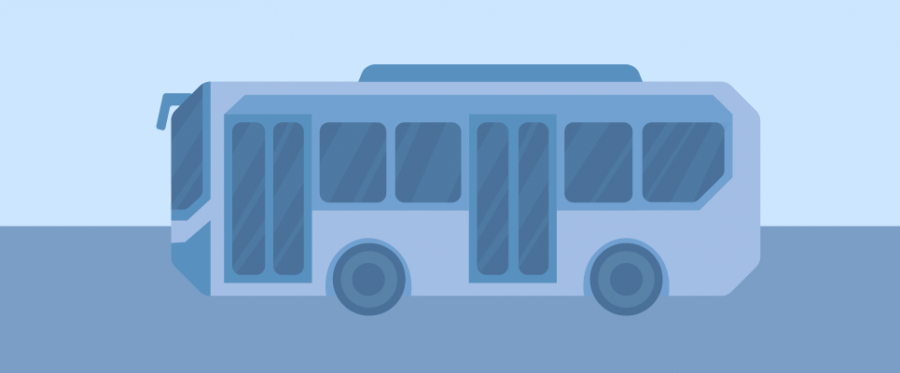Opinion | Public transportation exceeds time-consuming driving
Apr 2, 2021
As young adults, most college students have learned how to drive. To some students, cars are a sign of status or are simply the fastest mode of transportation. Others enjoy the act of driving or the independence it comes with.
With such a large variety of cars on the road, it’s also easy to see how people enjoy the aesthetic of cars: racy reds, burning blues and wild whites on old and new cars alike. Nowadays, in response to worry about climate change, electric cars zoom the streets — some completely noiseless.
Without a doubt, cars are beneficial but, in my opinion, the positives are greatly outweighed by the negatives. In other words, cars cost.
Deadly crashes are a daily occurrence. According to Driver Knowledge, the average number of car crashes in the United States per year is six million and out of these crashes, an average of 32,850 people die. Clearly, cars must be used with caution.
Public transportation, on the other hand, causes much fewer deaths and crashes. FVF Law claims that “For instance, the accident fatality rate for buses is about 45 deaths per 100,000 accidents, while the rate for private vehicle accidents is 251.” With these statistics, we can also see how using public transportation is much safer than driving cars. That’s a lot more deaths caused by cars — a huge con for cars and pro for public transportation. Are you willing to risk your life every time you drive your car?
Get The Daily Illini in your inbox!
However, that’s not the only negative. Cars emit gasses that damage our environment at a greater rate per passenger than public transportation vehicles.
With public transportation, a large number of people can be transported to the same place using a lower amount of gas per person — therefore harming the environment less. As we have started creating electric cars, electric busses and trains could dramatically reduce the amount of gas emissions from these large vehicles — throwing gas cars out of the eco-friendly race. Why damage the environment more than we already do?
Here in Urbana, it’s convenient having a car to go see family and friends via the interstate or to get to work on time. In congested cities like Chicago or New York, cars can sit through minutes, or even hours, of traffic — making it more difficult to get to a destination on time.
Public transportation circumvents this traffic. Train tracks have no stoplights, no angry drivers in Dodges cutting you off because they almost missed their exit and no honking Hondas. Trains provide only a peaceful, rocking ride ahead. Why sit still on a highway wasting money, time and gas when you could be zipping off to work?
Using public transportation creates time for an individual to catch up on work. Such a commute can be spent reading through documents, replying to those hundreds of emails or anything else one desires. With the burden of paying attention to the road lifted off your shoulders, the world is your oyster. Do you really want to throw one hour down the drain by driving?
Clearly, public transportation benefits both individuals and the planet at large. While some need cars, others may consider these tremendous advantages of using buses, trains and subways to get from place to place. The question is, which will you choose?
Chiara is a freshman in LAS.






